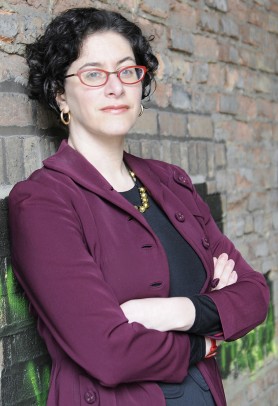International conference urges cities to let residents spend their taxes
City planners, officials, and activists from around the world will gather in Chicago May 3-5 to promote a new way of spending taxpayers’ money: letting residents suggest projects and vote to decide what gets funded.
The Great Cities Institute at the University of Illinois at Chicago has partnered with the New York-based nonprofit group The Participatory Budgeting Project to support the participatory budgeting process in Chicago this past year. The two organizations will now host a three-day conference with experts from around the world.
The conference, “Building a Democratic City,” will begin with a training workshop at UIC on May 3. Other activities will include tours of local infrastructure projects chosen through participatory budgeting, a Chicago voting returns celebration, and discussion panels on political strategy, inclusion, international networking, technical tools, and more.
Speakers will discuss participatory budgeting in Chicago, New York, San Francisco, Toronto, Montreal and other cities in Latin America, North America, Asia, Africa, and Europe.
Participatory budgeting in the U.S. began in 2009 when 49th ward Alderman Joe Moore became the first elected official in the nation to try it. Residents of his ward determined how more than $3 million would be spent, including $150,000 for urgent sidewalk repairs, $125,000 for a new playground, $120,000 for murals at transit viaducts, and $75,000 for shade trees.
Last year, aldermen in the 5th, 45th, and 46th wards signed on, allowing residents to decide how to spend $4 million in taxpayer dollars.
“Budget cuts are leading officials to look for more transparent, equitable ways to manage their remaining dollars,” said Rachel Weber, associate director of the Great Cities Institute. “We’ve tried to involve as many residents as possible, especially those who previously haven’t participated in politics and neighborhood planning. Ultimately, the initiative fosters a sense of ownership over shared resources and connectedness in the community.”
Thea Crum, economic development planner at the Great Cities Institute, says participatory budgeting has spread to more than 1,500 cities worldwide since it was introduced in 1989 in Porto Alegre, Brazil. The United Nations promotes it as a best practice of democratic governance.
The conference is open to all. Registration is $60 for students and low-income participants and $125 for others. Information on registration, events and locations may be found at http://pbconference.wordpress.com/.

